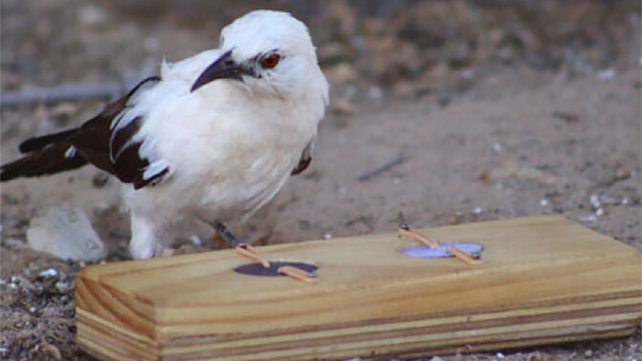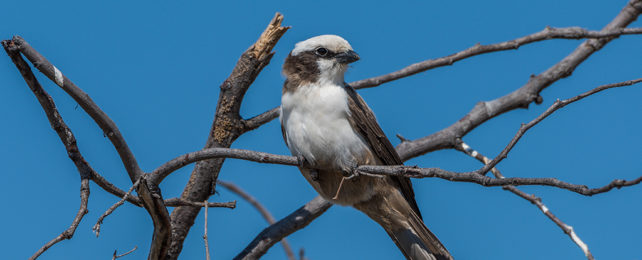Researchers have discovered something strange about female southern pied babblers, a small black-and-white bird found in Africa's dry savannah: the more chicks that they have over the years, the less smart they seem to get.
As these birds age, they typically produce more offspring each year. Meanwhile, according to a series of controlled tests conducted by researchers from the University of Western Australia, their cognitive ability declines.
This findings suggest intelligence and reasoning comes at a cost in energy. In animals where energy and resources are at a premium, the survival of the next generation has priority.
"Analyzing over 10 years of breeding data, we found that individuals with lower general cognitive performance produced more fledglings per year," UWA evolutionary biologist Camilla Soravia and colleagues write in their published paper.
"Collectively, our findings support the existence of a trade-off between cognitive performance and reproductive success in a wild bird."
Cognitive performance refers to the ability to take in information, process it, and then act accordingly. In the case of this study, 38 wild southern pied babblers (Turdoides bicolor) were tested on how well they could learn associations, adapt to changes in the experiments, and control counterproductive behaviors, with food used as a reward.

The birds that did well on one task generally performed well on all tasks, demonstrating high levels of general cognitive performance (or GCP). This GCP varied considerably across all birds of both sexes, but was comparatively lower among female birds who were older in age.
At the same time, a measure of the females' reproductive success suggested their fertility tended to increase with each passing year.
In male birds, there was no significant difference in cognitive ability across birds of different ages. There was also no evidence that living in larger groups increased intelligence, as has been suggested by some other studies of Western Australian magpies (Gymnorhina tibicen dorsalis).
"To our knowledge, our finding represents the first evidence of sex differences in age-related cognitive decline in a wild animal," write the researchers.
As the researchers point out in their finished study, breeding is competitive if you're a southern pied babbler: females try to dominate each other and fight to get the attention of males, and clutches of eggs often get destroyed and need to be laid all over again.
This requires a lot of energy. For younger female birds, it might pay off to establish yourself with some smart acting. As females get older, they might put more of their efforts into reproducing rather than maintaining their nervous system and brain – this is something that has been noticed in butterflies, for example.
Given the study constitutes a snapshot in time of birds at different ages, it can't be ruled out that female birds with lower GCP simply outlived females who spent more energy on cognitive performance, rather than experience a decline in intelligence. More data taken over a longer period of time would help prove this is what's happening. However, it's an interesting association that the study authors want to explore further.
"In order to understand how selection acts on cognition we need to consider not only its benefits but also its costs," Soravia and colleagues conclude.
"Future studies should consider expanding the test battery by including, for example, tasks assessing social cognition, the ability to make inferences and reaction time."
The research has been published in Proceedings of the Royal Society B.
